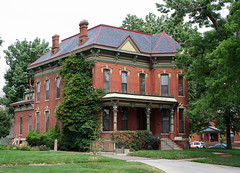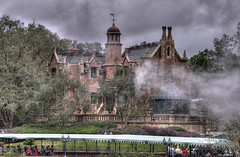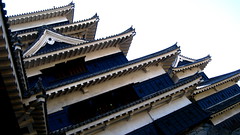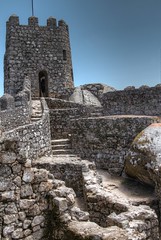HARP Study: Your Loan-to-value products in Affects Your Choice Mortgage
The 30-year fixed rate mortgage increased its market share compared to other mortgage products. In part because of the HARP 2.0 refinance selected households. Benchmark product with the highest rate in 18 months 15-year fixed mortgages have …
For more informaiton please visit here …
Treason – for his father’s dream – The obsessional neurosis of Barack Hussein Obama II in the White House

Image by Richard Loyal French
“”The President isn’t exactly a socialist. So what’s driving his hostility to private enterprise? Look to his roots.
Barack Obama is the most antibusiness president in a generation, and perhaps in American history. Thanks to him the era of big government is back. Obama runs up taxpayer debt not in the billions but in the trillions. He has expanded the federal government’s control over home mortgages, recipe investment banking, more about health care, autos and energy. The Weekly Standard summarizes Obama’s approach as omnipotence at home, impotence abroad.
The President’s actions are so bizarre that they mystify his critics and supporters alike. Consider this headline from the Aug. 18, 2009 issue of the Wall Street Journal: "Obama Underwrites Offshore Drilling." Did you read that correctly? You did. The Administration supports offshore drilling–but drilling off the shores of Brazil. With Obama’s backing, the U.S. Export-Import Bank offered billion in loans and guarantees to Brazil’s state-owned oil company Petrobras to finance exploration in the Santos Basin near Rio de Janeiro–not so the oil ends up in the U.S. He is funding Brazilian exploration so that the oil can stay in Brazil.
More strange behavior: Obama’s June 15, 2010 speech in response to the Gulf oil spill focused not on cleanup strategies but rather on the fact that Americans "consume more than 20% of the world’s oil but have less than 2% of the world’s resources." Obama railed on about "America’s century-long addiction to fossil fuels." What does any of this have to do with the oil spill? Would the calamity have been less of a problem if America consumed a mere 10% of the world’s resources?
The oddities go on and on. Obama’s Administration has declared that even banks that want to repay their bailout money may be refused permission to do so. Only after the Obama team cleared a bank through the Fed’s "stress test" was it eligible to give taxpayers their money back. Even then, declared Treasury Secretary Tim Geithner, the Administration might force banks to keep the money.
The President continues to push for stimulus even though hundreds of billions of dollars in such funds seem to have done little. The unemployment rate when Obama took office in January 2009 was 7.7%; now it is 9.5%. Yet he wants to spend even more and is determined to foist the entire bill on Americans making 0,000 a year or more.
The rich, Obama insists, aren’t paying their "fair share." This by itself seems odd given that the top 1% of Americans pay 40% of all federal income taxes; the next 9% of income earners pay another 30%. So the top 10% pays 70% of the taxes; the bottom 40% pays close to nothing. This does indeed seem unfair–to the rich.
Obama’s foreign policy is no less strange. He supports a 0 million mosque scheduled to be built near the site where terrorists in the name of Islam brought down the World Trade Center. Obama’s rationale, that "our commitment to religious freedom must be unshakable," seems utterly irrelevant to the issue of why the proposed Cordoba House should be constructed at Ground Zero.
Recently the London Times reported that the Obama Administration supported the conditional release of Abdel Baset al-Megrahi, the Lockerbie bomber convicted in connection with the deaths of 270 people, mostly Americans. This was an eye-opener because when Scotland released Megrahi from prison and sent him home to Libya in August 2009, the Obama Administration publicly and appropriately complained.
The Times, however, obtained a letter the Obama Administration sent to Scotland a week before the event in which it said that releasing Megrahi on "compassionate grounds" was acceptable as long as he was kept in Scotland and would be "far preferable" to sending him back to Libya. Scottish officials interpreted this to mean that U.S. objections to Megrahi’s release were "half-hearted." They released him to his home country, where he lives today as a free man.
One more anomaly: A few months ago NASA Chief Charles Bolden announced that from now on the primary mission of America’s space agency would be to improve relations with the Muslim world. Come again?
Bolden said he got the word directly from the President. "He wanted me to find a way to reach out to the Muslim world and engage much more with dominantly Muslim nations to help them feel good about their historic contribution to science and math and engineering." Bolden added that the International Space Station was a model for NASA’s future, since it was not just a U.S. operation but included the Russians and the Chinese.
Obama’s redirection of the agency caused consternation among former astronauts like Neil Armstrong and John Glenn, and even among the President’s supporters: Most people think of NASA’s job as one of landing on the moon and Mars and exploring other faraway destinations. Sure, we are for Islamic self-esteem, but what on earth was Obama up to here?
Theories abound to explain the President’s goals and actions. Critics in the business community–including some Obama voters who now have buyer’s remorse–tend to focus on two main themes.
The first is that Obama is clueless about business.
The second is that Obama is a socialist–not an out-and-out Marxist, but something of a European-style socialist, with a penchant for leveling and government redistribution.
These theories aren’t wrong so much as they are inadequate. Even if they could account for Obama’s domestic policy, they cannot explain his foreign policy. The real problem with Obama is worse–much worse.
But we have been blinded to his real agenda because, across the political spectrum, we all seek to fit him into some version of American history. In the process, we ignore Obama’s own history.
Here is a man who spent his formative years–the first 17 years of his life–off the American mainland, in Hawaii, Indonesia and Pakistan, with multiple subsequent journeys to Africa.
A good way to discern what motivates Obama is to ask a simple question: What is his dream? Is it the American dream? Is it Martin Luther King’s dream? Or something else?
It is certainly not the American dream as conceived by the founders. They believed the nation was a "new order for the ages." A half-century later Alexis de Tocqueville wrote of America as creating "a distinct species of mankind." This is known as American exceptionalism.
But when asked at a 2009 press conference whether he believed in this ideal, Obama said no.
America, he suggested, is no more unique or exceptional than Britain or Greece or any other country.
Perhaps, then, Obama shares Martin Luther King’s dream of a color-blind society. The President has benefited from that dream; he campaigned as a nonracial candidate, and many Americans voted for him because he represents the color-blind ideal.
Even so, King’s dream is not Obama’s: The President never champions the idea of color-blindness or race-neutrality.
This inaction is not merely tactical; the race issue simply isn’t what drives Obama.
What then is Obama’s dream?
We don’t have to speculate because the President tells us himself in his autobiography, "Dreams from My Father."
According to Obama, his dream is his father’s dream.
Notice that his title is not Dreams of My Father, but rather, Dreams from My Father.
Obama isn’t writing about his father’s dreams; he is writing about the dreams he received from his father.
So who was Barack Obama Sr.?
He was a Luo tribesman who grew up in Kenya and studied at Harvard. He was a polygamist who had, over the course of his lifetime, four wives and eight children.
One of his sons, Mark Obama, has accused him of abuse and wife-beating. He was also a regular drunk driver who got into numerous accidents, killing a man in one and causing his own legs to be amputated due to injury in another.
In 1982 he got drunk at a bar in Nairobi and drove into a tree, killing himself.
An odd choice, certainly, as an inspirational hero. But to his son, the elder Obama represented a great and noble cause, the cause of anticolonialism.
Obama Sr. grew up during Africa’s struggle to be free of European rule, and he was one of the early generation of Africans chosen to study in America and then to shape his country’s future.
I know a great deal about anticolonialism, because I am a native of Mumbai, India. I am part of the first Indian generation to be born after my country’s independence from the British.
Anticolonialism was the rallying cry of Third World politics for much of the second half of the 20th century. To most Americans, however, anticolonialism is an unfamiliar idea, so let me explain it.
Anticolonialism is the doctrine that rich countries of the West got rich by invading, occupying and looting poor countries of Asia, Africa and South America.
As one of Obama’s acknowledged intellectual influences, Frantz Fanon, wrote inThe Wretched of the Earth, "The well-being and progress of Europe have been built up with the sweat and the dead bodies of Negroes, Arabs, Indians and the yellow races."
Anticolonialists hold that even when countries secure political independence they remain economically dependent on their former captors.
This dependence is called neocolonialism, a term defined by the African statesman Kwame Nkrumah (1909–72) in his book Neocolonialism: The Last Stage of Imperialism.
Nkrumah, Ghana’s first president, writes that poor countries may be nominally free, but they continue to be manipulated from abroad by powerful corporate and plutocratic elites.
These forces of neocolonialism oppress not only Third World people but also citizens in their own countries. Obviously the solution is to resist and overthrow the oppressors.
This was the anticolonial ideology of Barack Obama Sr. and many in his generation, including many of my own relatives in India.
Obama Sr. was an economist, and in 1965 he published an important article in the East Africa Journal called "Problems Facing Our Socialism."
Obama Sr. wasn’t a doctrinaire socialist; rather, he saw state appropriation of wealth as a necessary means to achieve the anticolonial objective of taking resources away from the foreign looters and restoring them to the people of Africa.
For Obama Sr. this was an issue of national autonomy. "Is it the African who owns this country? If he does, then why should he not control the economic means of growth in this country?"
As he put it, "We need to eliminate power structures that have been built through excessive accumulation so that not only a few individuals shall control a vast magnitude of resources as is the case now."
The senior Obama proposed that the state confiscate private land and raise taxes with no upper limit.
In fact, he insisted that "theoretically there is nothing that can stop the government from taxing 100% of income so long as the people get benefits from the government commensurate with their income which is taxed."
Remarkably, President Obama, who knows his father’s history very well, has never mentioned his father’s article.
Even more remarkably, there has been virtually no reporting on a document that seems directly relevant to what the junior Obama is doing in the White House.
While the senior Obama called for Africa to free itself from the neocolonial influence of Europe and specifically Britain, he knew when he came to America in 1959 that the global balance of power was shifting.
Even then, he recognized what has become a new tenet of anticolonialist ideology: Today’s neocolonial leader is not Europe but America.
As the late Palestinian scholar Edward Said–who was one of Obama’s teachers at Columbia University–wrote in Culture and Imperialism, "The United States has replaced the earlier great empires and is the dominant outside force."
From the anticolonial perspective, American imperialism is on a rampage. For a while, U.S. power was checked by the Soviet Union, but since the end of the Cold War, America has been the sole superpower.
Moreover, 9/11 provided the occasion for America to invade and occupy two countries, Iraq and Afghanistan, and also to seek political and economic domination in the same way the French and the British empires once did.
So in the anticolonial view, America is now the rogue elephant that subjugates and tramples the people of the world.
It may seem incredible to suggest that the anticolonial ideology of Barack Obama Sr. is espoused by his son, the President of the United States. That is what I am saying. From a very young age and through his formative years, Obama learned to see America as a force for global domination and destruction.
He came to view America’s military as an instrument of neocolonial occupation. He adopted his father’s position that capitalism and free markets are code words for economic plunder.
Obama grew to perceive the rich as an oppressive class, a kind of neocolonial power within America.
In his worldview, profits are a measure of how effectively you have ripped off the rest of society, and America’s power in the world is a measure of how selfishly it consumes the globe’s resources and how ruthlessly it bullies and dominates the rest of the planet.
For Obama, the solutions are simple. He must work to wring the neocolonialism out of America and the West. And here is where our anticolonial understanding of Obama really takes off, because it provides a vital key to explaining not only his major policy actions but also the little details that no other theory can adequately account for.
Why support oil drilling off the coast of Brazil but not in America? Obama believes that the West uses a disproportionate share of the world’s energy resources, so he wants neocolonial America to have less and the former colonized countries to have more.
More broadly, his proposal for carbon taxes has little to do with whether the planet is getting warmer or colder; it is simply a way to penalize, and therefore reduce, America’s carbon consumption.
Both as a U.S. Senator and in his speech, as President, to the United Nations, Obama has proposed that the West massively subsidize energy production in the developing world.
Rejecting the socialist formula, Obama has shown no intention to nationalize the investment banks or the health sector. Rather, he seeks to decolonize these institutions, and this means bringing them under the government’s leash.
That’s why Obama retains the right to refuse bailout paybacks–so that he can maintain his control. For Obama, health insurance companies on their own are oppressive racketeers, but once they submitted to federal oversight he was happy to do business with them. He even promised them expanded business as a result of his law forcing every American to buy health insurance.
If Obama shares his father’s anticolonial crusade, that would explain why he wants people who are already paying close to 50% of their income in overall taxes to pay even more.
The anticolonialist believes that since the rich have prospered at the expense of others, their wealth doesn’t really belong to them; therefore whatever can be extracted from them is automatically just.
Recall what Obama Sr. said in his 1965 paper: There is no tax rate too high, and even a 100% rate is justified under certain circumstances.
Obama supports the Ground Zero mosque because to him 9/11 is the event that unleashed the American bogey and pushed us into Iraq and Afghanistan. He views some of the Muslims who are fighting against America abroad as resisters of U.S. imperialism.
Certainly that is the way the Lockerbie bomber Abdel Baset al-Megrahi portrayed himself at his trial. Obama’s perception of him as an anticolonial resister would explain why he gave tacit approval for this murderer of hundreds of Americans to be released from captivity.
Finally, NASA. No explanation other than anticolonialism makes sense of Obama’s curious mandate to convert a space agency into a Muslim and international outreach.
We can see how well our theory works by recalling the moon landing of Apollo 11 in 1969. "One small step for man," Neil Armstrong said. "One giant leap for mankind."
But that’s not how the rest of the world saw it.
I was 8 years old at the time and living in my native India. I remember my grandfather telling me about the great race between America and Russia to put a man on the moon. Clearly America had won, and this was one giant leap not for mankind but for the U.S.
If Obama shares this view, it’s no wonder he wants to blunt NASA’s space program, to divert it from a symbol of American greatness into a more modest public relations program.
Clearly the anticolonial ideology of Barack Obama Sr. goes a long way to explain the actions and policies of his son in the Oval Office. And we can be doubly sure about his father’s influence because those who know Obama well testify to it. His "granny" Sarah Obama (not his real grandmother but one of his grandfather’s other wives) told Newsweek, "I look at him and I see all the same things–he has taken everything from his father. The son is realizing everything the father wanted. The dreams of the father are still alive in the son."
In his own writings Obama stresses the centrality of his father not only to his beliefs and values but to his very identity. He calls his memoir "the record of a personal, interior journey–a boy’s search for his father and through that search a workable meaning for his life as a black American." And again, "It was into my father’s image, the black man, son of Africa, that I’d packed all the attributes I sought in myself."
Even though his father was absent for virtually all his life, Obama writes, "My father’s voice had nevertheless remained untainted, inspiring, rebuking, granting or withholding approval. You do not work hard enough, Barry. You must help in your people’s struggle. Wake up, black man!"
The climax of Obama’s narrative is when he goes to Kenya and weeps at his father’s grave. It is riveting: "When my tears were finally spent," he writes, "I felt a calmness wash over me. I felt the circle finally close. I realized that who I was, what I cared about, was no longer just a matter of intellect or obligation, no longer a construct of words. I saw that my life in America–the black life, the white life, the sense of abandonment I’d felt as a boy, the frustration and hope I’d witnessed in Chicago–all of it was connected with this small piece of earth an ocean away, connected by more than the accident of a name or the color of my skin. The pain that I felt was my father’s pain."
In an eerie conclusion, Obama writes that "I sat at my father’s grave and spoke to him through Africa’s red soil."
In a sense, through the earth itself, he communes with his father and receives his father’s spirit. Obama takes on his father’s struggle, not by recovering his body but by embracing his cause. He decides that where Obama Sr. failed, he will succeed.
Obama Sr.’s hatred of the colonial system becomes Obama Jr.’s hatred; his botched attempt to set the world right defines his son’s objective. Through a kind of sacramental rite at the family tomb, the father’s struggle becomes the son’s birthright.
Colonialism today is a dead issue. No one cares about it except the man in the White House.
He is the last anticolonial.
Emerging market economies such as China, India, Chile and Indonesia have solved the problem of backwardness; they are exploiting their labor advantage and growing much faster than the U.S.
If America is going to remain on top, we have to compete in an increasingly tough environment.
But instead of readying us for the challenge, our President is trapped in his father’s time machine. Incredibly, the U.S. is being ruled according to the dreams of a Luo tribesman of the 1950s. This philandering, inebriated African socialist, who raged against the world for denying him the realization of his anticolonial ambitions, is now setting the nation’s agenda through the reincarnation of his dreams in his son.
The son makes it happen, but he candidly admits he is only living out his father’s dream. The invisible father provides the inspiration, and the son dutifully gets the job done. America today is governed by a ghost.””
Dinesh D’Souza, the president of the King’s College in New York City, is the author of the forthcoming book The Roots of Obama’s Rage (Regnery Publishing).
“”Correction: Dinesh D’Souza writes that on June 15, 2010, Obama gave a speech in response to the BP oil spill that was "focused not on cleanup strategies but rather on the fact that Americans ‘consume more than 20% of the world’s oil but have less than 2% of the world’s resources.’"
D’Souza slightly misquoted the President who said, "2% of the world’s oil reserves." In addition, Obama’s speech did discuss concrete measures to investigate the oil spill and bring it under control.””
From: Forbes – by Dinesh D’Souza –
www.forbes.com/forbes/2010/0927/politics-socialism-capita…
.
.
*******************************************************************************
———————————————————————————————–
THE PEOPLE’S DECLARATION TO REVOKE AND ABOLISH.wmv
www.youtube.com/watch?v=Uv9ynF7UtH8
———————————————————————————————–
******************************************************************************
If you would like to see more homes click here…
What is the difference between FHA and conventional loans?
With all home loans, until you have a certain amount of equity in the property, the lender requires an insurance policy, commonly called PMI, which stands for Private Mortgage Insurance. The buyer pays for it, but it only benefits the lender. It is …
For more informaiton please visit here…
4 Unexpected Mortgage Decisions Every Buyer Will Face (and How to Make …
One of the more critical decision factors is the issue of private mortgage insurance or PMI (aka mortgage insurance premium or MIP, for FHA loans). If you drop below the 20 percent down payment level, your lender will add a mortgage insurance policy to …
For more informaiton please visit here…
Arizona Regulator Sues NMI Showing Watchdog Influence: Mortgages
Arizona officials, acting as receivers for PMI Mortgage Insurance, which they seized last year, sued NMI and at least six of its employees on Aug. 8, saying some PMI workers stole information and did tasks for NMI over at least seven months before …
More informaiton please visit here…
Question by bag-ten: In 2003 what did FHA Reverse Mortgages pay in interest on unused available cash?
In 03 the economy came back like gangbusters. Did money that seniors had in reverse mortgage equity reserves also benefit from rapidly rising rates? Did those rates go up and by how much? Or did they even go down?
Best answer:
Answer by bburns31
Bag-Ten, viagra 100mg
The reverse mortgage equity reserves or lines of credits grow at the same rate as the interest being charged against the borrower including the FHA mortgage insurance payment of .5% a year. So to figure out what someones line of credit growth rate was at any time you have to know what the current interest rate is being charged. FHA reverse mortgage interest rates are tied to the 1 year Treasury Bill plus 1.5%. In 03 the average T-Bill was around 1.25%. So to figure out what the return was in 03 for a reverse mortgage line of credit you would figure 1.25%(T-Bill) + 1.5%(Interest rate) + .5 (FHA mortgage Insurance) = 3.25% Growth rate for the Line of Credit. This return fluctuates accordingly so as the rate goes up it goes up or just the opposite. For example today that growth rate is 7.22%.
You can look at the history of the T-Bill here and calculate what the return was at any time with the above formula.
http://www.erate.com/1_year_t-bill_index_adjustable_rate_mortgage_arm.htm
I hope that helps. This is all I specialize in so if you have any other questions please feel free to contact me.
Thanks, side effects
Brandon
bburns@griffinloans.com
Know better? Leave your own answer in the comments!
A couple of nice castle images I found:
Castle Coch1

Image by Daniel Torrejon
Castle Coch, medications una belleza de Wales por descubrir.
If you would like to see much more homes click here…
Question by : Can you purchase appliances with an FHA 203K loan?
I’m a new home buyer looking into purchasing a home with a FHA 203K mortgage. The home I am particularly interested in needs the furnace and roof replaced. From what I understand, this both of these can be covered under the FHA 203K loan. The home also lacks all appliances. I would need a washer and dryer, website range, prescription refrigerator, dishwasher, and microwave range hood. Is this covered under the FHA 203K? Or will this be something that I will have to purchase separately?
Best answer:
Answer by someone
Appliances come out of your pocket
Give your answer to this question below!
Question by cardinalfanusa: Mortgage rates?
I keep hearing that mortgage rates will probably hold steady until mid-2008. They’ve already increased from 6.15 to 6.75 in the past 6 weeks. I’m building a house, no rx and won’t be able to lock in a mortgage rate until probably mid-August. Should I “buy” my mortgage rate at 6.75% now for $ 750, generic or should I hold off?
What are the odds that rates will top 7.25% within the next three months?
Best answer:
Answer by achievablemortgages
If you can lock at that rate right now for 750.00, my advise would be to do it. No one has a crystal ball, but rates show no signs of falling any time soon. As you stated previously, rates have risen by over .5% in the last couple months. Take the bird in the hand. It’ll give you peace of mind.
Add your own answer in the comments!
Check out these mansion photos:
Gebhard Mansion

Image by Jeffrey Beall
GEBHARD MANSION
2253 Downing St.
National Register 10/1/1992, visit this site 5DV.202.15
"Located inside the San Rafael Historic District, discount the effectively-preserved 1883 Gebhard Mansion is thought of to be one of Denver’s finest residential examples of the Italianate style. The hipped roof of the two-story brick developing is accented with many decorative gables and there is a deep bracketed cornice. The facade attributes an elaborate porch and a prominent two-story corner bay topped with a conical roof. The original owner, Henry Gebhard, organized the Colorado Packing Provision Firm in 1890, an enterprise that soon became the largest packer of pork and beef in Colorado." –Description from the Colorado Historical Society Internet site.
If you would like to see more houses click here…
Haunted Mansion

Image by J.E.Skodak
Mansion edit without Awning
www.flickr.com/pictures/skodak/908011230/
If you would like to see much more homes click right here…
Mortgage Refinancing's Future May Imply Models Overstate Returns
These rules “at some point” are likely to replace the looser guidelines targeted at borrowers with tiny or no home equity below the federal Residence Affordable Refinance System introduced in 2009 and refined last year. … The assessment shows the …
If you would like more informaiton please go to here…
Upside down is not a poor thing any longer
Did you know the government has a way to assist home owners who are at present upside in their mortgages? Residence Cost-effective Refinance Plan (HARP-two) is a federal system of the United States, viagra set up by the Federal Housing Finance Agency in March …
If you would like far more informaiton please visit right here…
HARP Statistics : ten States Account for 70% Of HARP Refinance Requests
Because its launch, cheap this website has logged more than 30, more about 000 requests for HARP mortgage rates. Not surprisingly … Refinance Program. It was launched as part of the government's Making House Inexpensive initiative in 2009. … Homeowners who were deeply …
If you would like much more informaiton please go to here…
Question by bucket_of_dust: Mortgage modification questions…?
My husband passed away in October 2009. Our mortgage note was in his name. I made the $ 1250.00 payments as long as I could. He was primary “bread-winner” so to say. And without his income it became very difficult, approved and no him passing away was not expected. In July of 2010 it was just not feasible for me anymore with 3 young children to raise also. So they told me to try for modification. Yesterday I received the call that FHA will modify and put the mortgage in my name. They are lowering the payment to $ 850. a month, ed lowered the interest rate to 5%, total owed is $ 165,000. I can handle the 850. They also want $ 2000.00 with the first months payment for courtesy fees, I read that through the HAMP program, a borrower wasn’t normally asked to pay for modification. When I asked about this they told me that it was for the interest that accrued while I wasn’t able to make the payments. There is a 2500 escrow overage and I asked if that could be used for the interest that needed to be paid and was told that the escrow account had a shortage of 100, which is not right because I just received the paperwork on the escrow account 2 days ago. The escrow account has always been over due to not being able to give me the overage check because the note was only in my husbands name. So my question is…is Flagstar correct in wanting this 2k? I have been through the wringer as far as this mod is going and just want to make sure that everything is right…
I don’t need to hear you got yourself into this, so pay it…this was an unexpected turn of events otherwise I would be paying the mortgage.
I know that escrow accounts can have certain amounts of overage…ours is $ 500…property taxes and insurance were paid in August of 2010…escrow paperwork was received 2 days ago…thanks for you’re answer.
Best answer:
Answer by Curious
If you hadn’t said “I don’t need to hear you got yourself into this, so pay it…this was an unexpected turn of events otherwise I would be paying the mortgage”, I wouldn’t mention this…
— you have 3 young child, your husband is the primary bread winner and your family obviously didn’t have the appropriate amount of life insurance to cover the expenses in the event the bread winner passed prematurely…
—– how is that not = you got yourself into this?
If you want to keep the house, pay the $ 2000.
Otherwise, you can fight it and see what happens, there is a strong likelihood that you will lose the property to foreclosure.
Also, escrow accounts are allowed to have overages of a certain amount. So the “shortage” to the bank is probably the overage is not at the level that is allowed or it could be that your property taxes and insurance were recently paid and since you haven’t been making payments, your coffer hasn’t been filling.
Add your own answer in the comments!
Question by peacegirl6: During an FHA appraisal, and do they go on the roof and look at the chimney?
I already had a home inspection and I know that on top of the chimney the brick is crumbling a little. He said it will cost about 500 or 1000 to fix. I plan to fix it in 2 months (don’t have money now). During the FHA appraisal will they go on the roof and check the chimney and make me fix it now?
Best answer:
Answer by My Take on It
Of course they will go on the roof and inspect it!
And, store yes, they very well may require you fix it before you close.
Add your own answer in the comments!
A handful of nice castle images I located:
Castle

Image by Sanctu
Spring time at Matsumoto Castle. See earlier cherry blossom series.
For more homes click here…
Castle of the Moors – Sintra, ask Portugal

Image by To Uncertainty And Beyond
Castle of the Moors is a castle situated in the town of Sintra, Portugal. The castle is of Moorish origin, but the present developing is the outcome of a romantic renovation carried out in the 19th century. Originally, the Castle of Sintra was built in between the 9th and 10th centuries. Arab chronicles depict the Sintra region as getting very wealthy in cultivated fields. Its castle was a single of the most important in the surroundings.
In 1109, the castle became subject to an attack by crusading Norwegians, lead by King Sigurd I, on their way to the Holy Land. Each and every man at the castle had been stated to have been killed as they had refused to turn into christened.
In 1147, after the conquest of Lisbon by King Afonso Henriques, the Moorish garrison of the castle surrendered to the Christians without having resistance. Afonso Henriques promoted the improvement of the area by granting a letter of feudal rights to the inhabitants of Sintra and its castle in 1154. During the reign of King Sancho I the castle was repaired, as properly as the romanesque Church of Saint Peter inside its walls.
The decline of the castle started in the 15th century, when most of the population settled downhill, in today’s old quarter of Sintra. In the 16th century, the castle lost all military relevance and was abandoned by its final inhabitants, the Sintra Jews.
In 1830, right after a long period of ruin, King Ferdinand II started a profound renovation of the castle in the romantic spirit of the time, which saw in the Middle Ages a source of inspiration. The walls and towers were rebuilt, even though the Church of Saint Peter was intentionally left in ruins. The castle, blended with the vegetation and topography of the hill, gained a fairy-tale, romantic atmosphere.
Stick to our journey around the world at To Uncertainty & Beyond.
If you would like to see much more houses click right here…



the classic blue and white!
nice angle ~
Beautiful building! One reason I would love to travel to Japan!
Definitely worth the read on lenders. Excellent read!
I admire the way you present the information.